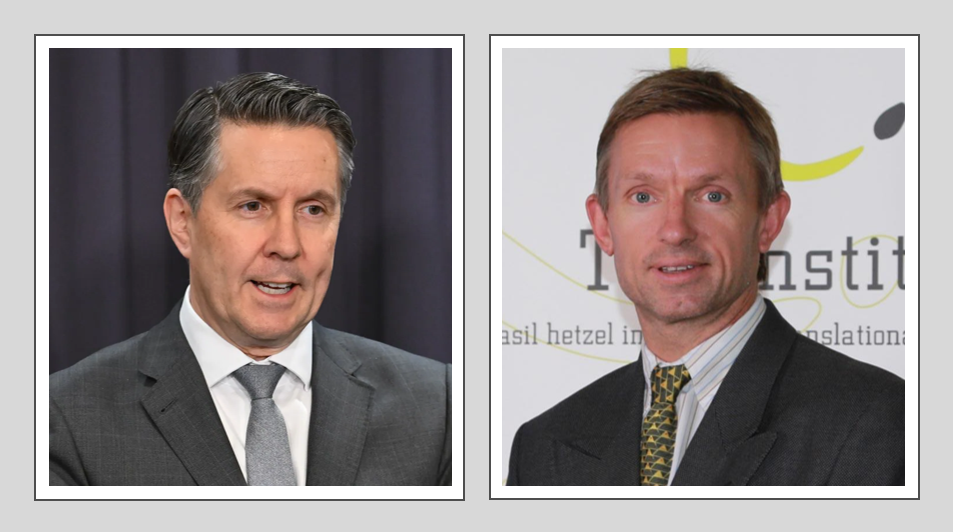News & Trends - MedTech & Diagnostics
Building respect in surgical culture needs continued commitment, according to five year evaluation

MedTech News: The Royal Australasian College of Surgeons (RACS) community overwhelmingly supports the College’s work to build respect in surgery, according to the findings of a five year evaluation.
Almost all (99%) Fellows, Trainees and SIMG’s believe they need to demonstrate respectful behaviours and 96% recognise the need to address unacceptable behaviour in colleagues and peers.
RACS President, Dr Sally Langley, noted the significant change in wider community attitudes over the same period, as a result of #metoo and vigorous public dialogue in Australia in 2021.
“We are proud of the work we have done to build respect in surgery and just as importantly, that the overwhelming majority of surgeons support our focus and commitment,” Dr Langley said.
“We know that cultural change takes time and is a shared goal across the health sector. This evaluation tells us we are on track, that RACS leadership is valued, and that we need to stay the course in our work to build a safe and respectful culture in surgery, that is good for our patients, our teams and ourselves,” Dr Langley said.
The evaluation looked at ‘expected’ changes in awareness, knowledge, skills and attitudes to discrimination, bullying and sexual harassment. The report notes that while some data collection focussed on behaviour change, this was done ‘to inform further planning and to create a baseline for future evaluations’.
A separate prevalence study, also conducted in mid-2021, looked at reported rates of unprofessional behaviours.
The evaluation found that RACS has strong credibility among external stakeholders and college members for its commitment and leadership. Fellows, Trainees and SIMGs also backed the ongoing relevance of this work, as well as its focus on improving surgical education and fostering cross -sector collaborations to build respect in surgery.
RACS commitment to building diversity was widely supported, along with an ongoing focus on improving surgical education. Issues around supervision remain challenging, with supervisors reporting feeling unsupported and fearful of legal challenges, and Trainees reporting concerns about lack of transparent and actionable feedback.
The devolved structure of surgical training delivery is cited in the report as a barrier for implementation of profession-wide initiatives to improve training and support cultural change.
The report found that ‘behaviour, a long-term goal of the Action Plan, is already beginning to change towards the desired outcomes. As expected, there is a gap between knowledge and behaviour, with variations in people’s level of confidence to take action when witnessing or experiencing an incident.’
The 2021 evaluation results will inform RACS’ next five years work to build a culture of respect in surgery.
Results of the 2015 and 2021 prevalence studies are not directly comparable, due to different timeframes for reported behaviours. The 2015 study detailed participants’ total experience of discrimination, bullying and sexual harassment, over their working lifetimes. The 2021 study tracked reports of these kinds of unprofessional behaviour in the last 12 months.
While the overall prevalence of unprofessional behaviours has not yet changed significantly (48% in 2015 and 50% in 2021), the nature of the reported behaviour is different.
There has been a significant increase (from 7% – 21%) in reports of sexual harassment, with reports by men increasing from 2% in 2015 to 16% in 2021, by women increasing from 30% in 2015 to 36% in 2021 and by Trainees increasing from 12% to 45%.
There was a slight decrease (47% – 43%) in reports of experience of bullying, discrimination and harassment. Reports of yelling, shouting, aggression or physical abuse have decreased and reports of belittling behaviour, career constraints, humiliating comments or being undermined have increased.
The nature of sexual harassment reported by Fellows, Trainees and SIMG’s is more nuanced in 2021, with fewer reports of flagrant sexual harassment (sexual propositioning and inappropriate physical contact) and an increase in reports of micro-aggressions (sexually explicit or offensive jokes, and comments about appearance or sexual orientation).
There is support for RACS focus on increasing diversity in the profession and an opportunity for the College to more widely communicate its revised approach to complaints management.
Knowledge of respectful behaviours is widespread and attitudes are changing, but ‘calling it out’ remains challenging. While the prevalence study shows that surgical behaviour is beginning to change, behaviour change is always a long term goal.
News & Trends - MedTech & Diagnostics

Stryker partners with local researchers to advance shoulder joint surgery
MedTech & Diagnostics News: Joint replacement is a commonly performed major surgical procedure that has considerable success in alleviating pain […]
MoreNews & Trends - Pharmaceuticals

Over two-thirds of Aussies missing healthcare appointments
Pharma News: Over 70% of Australians have postponed or cancelled healthcare appointments in the last 12 months. The primary reason […]
MoreNews & Trends - Pharmaceuticals

Opposition decries incremental change as New Zealand government defends Pharmac budget
Pharma News: New Zealand’s Associate Health Minister has made headlines by unveiling Pharmac’s largest ever budget of $6.294 billion over […]
MoreMedical

Telehealth’s 10-year leap in 10 days: Reshaping hospital EDs
Medical: As overcrowding and ramping continue to challenge emergency departments across Australia, the concept of virtual emergency departments (EDs) emerges […]
More